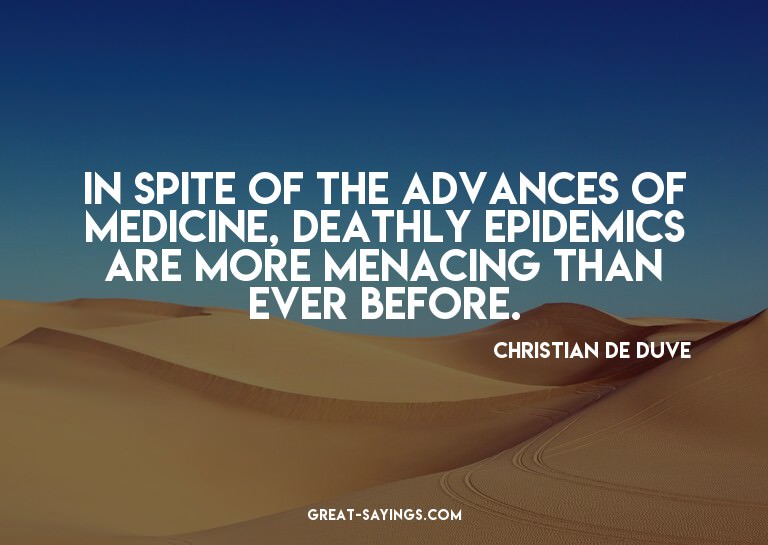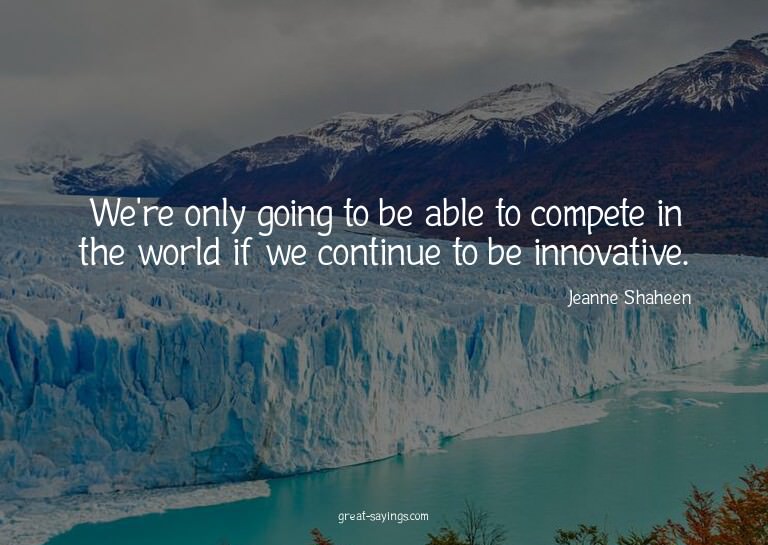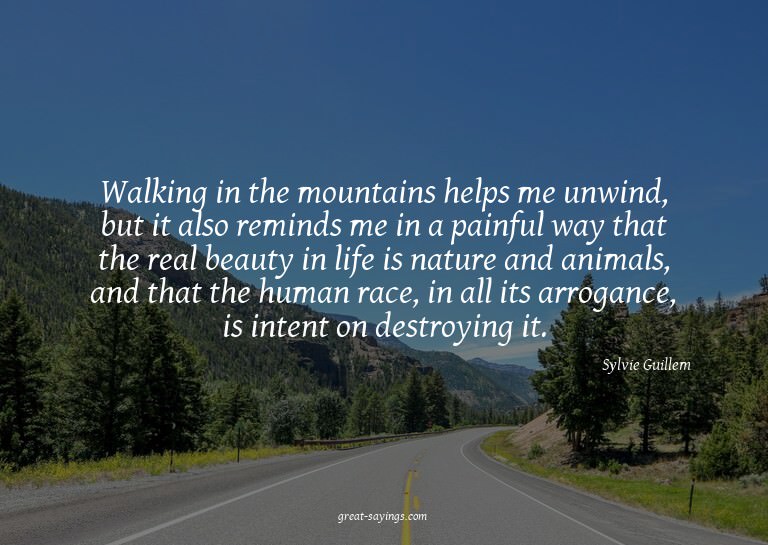Words matter. These are the best Christian de Duve Quotes, and they’re great for sharing with your friends.

In spite of the advances of medicine, deathly epidemics are more menacing than ever before.
Ribosomes contain RNA, messenger RNA provides the information, transfer RNAs brings the amino acids; so the protein-making machinery is an RNA machinery, completely.
Although attracted by the humanities, I had chosen medicine as a career, seduced by the image of the ‘man in white’ dispensing care and solace to the suffering. But science was lurking around the corner, in the form of an unpaid student assistantship in the laboratory of physiology.
What I was concerned with was life: what are the major features that are common to all living organisms that subtly define life. So I looked at the whole problem as a chemist, as a biochemist, and as a molecular biologist.
My education, according to the tradition of the Jesuit school which I attended, had been centered on the ‘ancient humanities’, and I was strongly attracted to the more literary branches.
I cannot look at a question and not try to find the answer, even if I don’t know it.
We know that once we stop learning and call ourselves learned, we become useless members of the scientific society.
I promptly fell in love with scientific research and soon had assigned myself, as a major vocation, the task of elucidating the mechanism of action of the antidiabetic hormone.
Due to these various circumstances, when I entered the Catholic University of Louvain in 1934, I had already travelled in a number of European countries and spoke four languages fairly fluently. This turned out to be a valuable asset in my subsequent career as a scientist.
Our investigations were very fruitful. They led to the discovery of a new cell part, the lysosome, which received its name in 1955, and later of yet another organelle, the peroxisome.
The possibility that lysosomes might accidentally become ruptured under certain conditions, and kill or injure their host-cells as a result, was considered right after we got our first clues to the existence of these particles.
The advantage of the analytical approach is that it is widely applicable, and it can provide a considerable amount of quantitative information even with a relatively poor resolving power.
I followed lectures on the history, geography, economy and political organization of Sweden.
If you want this planet to continue being habitable for everyone that lives here, you have to limit the number of inhabitants. Hunters do it by killing off the old or sick animals in a herd, but I don’t think that’s a very ethical way of limiting the population.
Although separating mitochondria and microsomes might appear worlds apart from the determination of the molecular weight of macromolecules, certain concepts were common to the two operations and could be usefully transposed from the latter to the former.
What would help us preserve our natural resources are genetic traits that let us sacrifice the present for the sake of the future. You need wisdom to sacrifice something that is immediately useful or advantageous for the sake of something that will be important in the future.
When, in 1949, I decided to join the little band of early explorers who had followed Albert Claude in his pioneering expeditions, electron microscopy was still in its infancy.
We are sick because our cells are sick.
The living world has become impoverished. Species are being lost every day. Energy and other resources are nearing exhaustion. The environment is deteriorating. Pollution is everywhere. Climate is changing. Natural balances are threatened.
Vast areas are witness to the struggles of destitute populations trying to survive under unlivable conditions.












